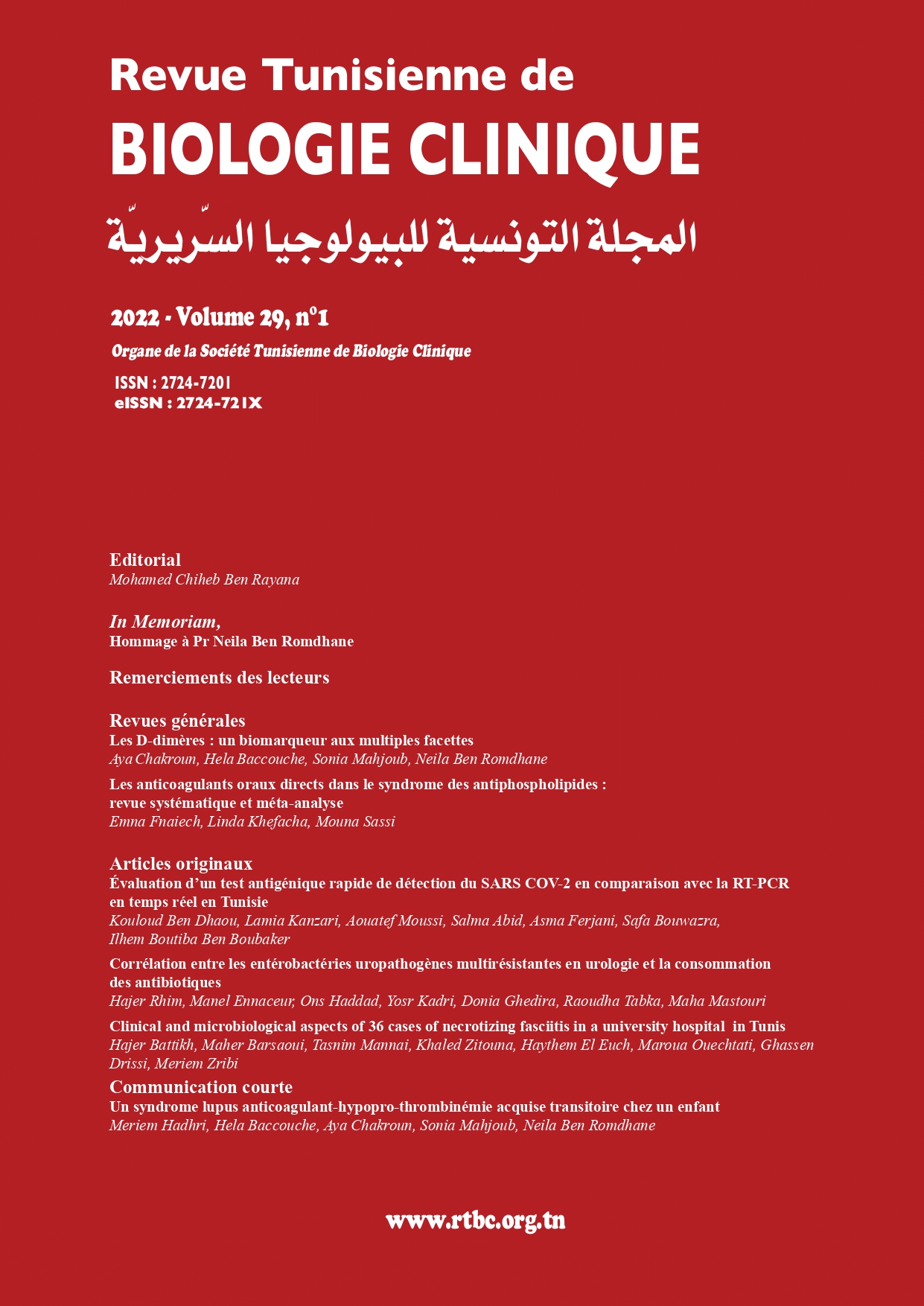Abstract
Introduction: In response to the growing COVID-19 pandemic, many manufacturers have developed and began selling Point Of Care tests in order to manage the current public health crisis. The aim of this study was to evaluate the performance of the SARS-COV-2 rapid antigen detection test with immunochromatography technique “STANDARD Q COVID-19 Ag Test“ (SD BIOSENSOR) in comparison with the reference method, the qualitative real-time reverse transcription PCR (rRT-PCR). Methods: The study included 200 frozen nasopharyngeal specimens from different patients, previously tested for SARS-CoV-2 using a laboratory-developed RT-qPCR assay based on the Hong Kong protocol, at the National Influenza Center at the Microbiology laboratory of Charles Nicolle Hospital. Specimens were divided into two sets: a first set of 100 samples with negative rRT-PCR results and a second set of 100 samples with positive rRT-PCR results, which was divided into 4 categories of 25 each according to viral load (very high, high, medium and low). All samples were tested with the SARS-COV-2 rapid antigen detection test “STANDARD Q COVID-19 Ag Test according to the manufacturer’s recommendations. Results obtained were compared with those by the rRT-PCR. Results: Negative samples results and very highly loaded samples results were consistent with the reference method. Nineteen out of 25 highly loaded samples were positive. However, for the medium and low loaded samples, 23/25 and 24/25 false negative results were found, respectively. Performance parameters showed a sensitivity of 47% and a specificity of 100%. Conclusion: The advantage of the STANDARD Q COVID-19 Ag Test is that a reliable positive result can be obtained within 30 minutes in highly suspicious patients. But it is insufficient to rule out true infection in case of a negative result, which requires rRT-PCR.

This work is licensed under a Creative Commons Attribution 4.0 International License.
Copyright (c) 2022 Revue Tunisienne de BIOLOGIE CLINIQUE

